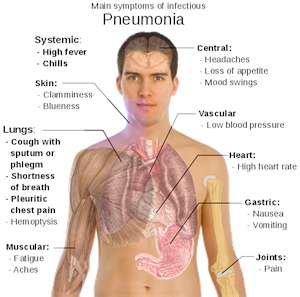After a person is said to have pneumonia, he will be prescribed with antibiotics, anti-fungal medications & antiviral medications, depending on the cause of the disease. Walking pneumonia is a kind of mild pneumonia. If the severity is high, it is called double pneumonia. In case the severity is high, hospitalization is required with oxygen & strong medication.
If the patient does not have any other illness, he can recover in 2 weeks after being diagnosed with pneumonia. People who have asthma, respiratory disorders & smokers will take many weeks or months to recover. Even after the infection is cured, cough will remain for some more weeks. The people who are old need to be cared for a lot in case they are infected with pneumonia. Seniors & children are high risk categories.
To recover faster, you can take a few measures though. Take adequate rest, drink lots of fluids, use the medicines as prescribed, & take steamy showers to clear the lungs. Also, inhale hot steam from fluids, & get out the excess mucus when you cough. Doctors will prescribe medicines to make the mucus thin in the lungs to help you overcome the infection. You can use over the counter drugs to reduce the cough, but it is better to consult your doctor before you use these drugs or any herbal medicines.








 2:05 PM
2:05 PM
 Unknown
Unknown


 Posted in:
Posted in: 
